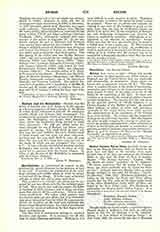

Rector (Lat. regere, to rule).—Priests who preside over missions or quasi-parishes are called rectors: in England and the United States they are removable and irremovable, or permanent. These latter are known also as missionary rectors (M. R.). The term rector is applied likewise to the heads of universities, seminaries, and colleges; to the local superiors of religious houses of men; to the pope, as rector of the world, in the conferring of the tiara. In some universities, e.g. Louvain, the actual president is known as rector magnificus. Rector general is the title given to the superior general of certain religious, e.g. Clerics Regular of the Mother of God. In ancient times bishops as rulers of cities and provinces, especially in the Papal States, were called rectors; also administrators of the patrimony of the Church (e.g. rector Sicilice). To a rector who has resigned is often given the title rector emeritus. One who supplies the place usually occupied by a rector is styled pro-rector (in parishes, administrator), while assistants to rectors in institutions are known as vice-rectors (in parishes, as curates, assistant, or associate, rectors etc.). Rector is used by Gregory the Great in the “Regula Pastoralis” as equivalent to pastor.
ANDREW B. MEEHAN

